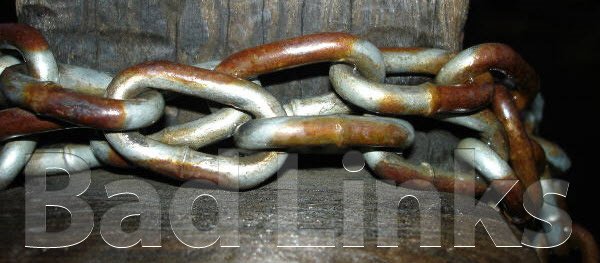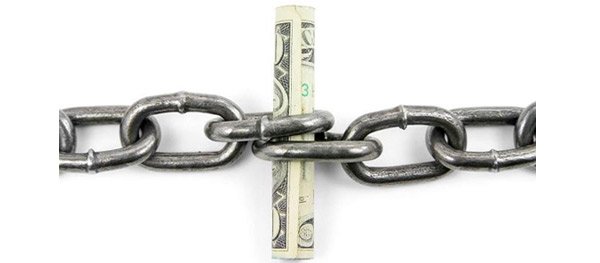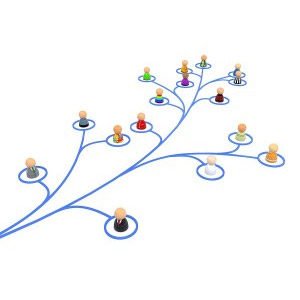4 Types of Link Building Techniques you Should Avoid at All Cost

Link building is the most effective way to promote your content, capture good traffic and rank well in the Search engine result page (SERP). Link building requires dedication, consistent effort, and on the top of that, a good knowledge on how to build links that comply with search engine rules, don’t get you penalized and pass the link juice so you can rank well after a certain amount of time. Sadly, not a lot of bloggers pay attention to avoid bad link building behaviors. I observe lot of them use bad linking techniques every day. The bad link building behaviors may not be identified by search engines in days, even months but at the end, it will ultimately ruin business. So, what are 4 types of bad link building behavior you should avoid?

1- Putting irrelevant links in comment, forum post, etc.
Whenever you come across the spam queue in your blog, you will instantly recognize some comments that seem legitimate, but they are marked at spam because they contain an irrelevant link in the comment section. Here’s what it looks like in my spam queue:

Although putting a link in a comment body may contribute to improve the ranking of your page on a specific keyword, famous bloggers should never take that road to build backlinks because it will hurt your reputation in the long run. Putting the link the comment body makes you look like a spammer, not someone whom can be trusted by the community.
2- Link buying

Link buying is quite popular in the webmaster world. If you take a look at Digital point forum, you can easily find people buying and selling links busily.
You should avoid building backlinks this way because:
- It goes against Google rules. In the Webmaster guidelines posted in the Webmaster Central, Google has stated clearly that webmasters should not buy backlinks to increase the popularity of the website. Sometimes, rules are strict, but we better follow it.
- You can’t trust the other site. The site that you are preparing to buy links from may appear to be legitimate website for right now. However, you can’t be sure that the owner will not take his site down a month later. Even more dangerous, that site may become a spam site or a virus-contained site and if your links is put on those sites, you may get penalized by the search engines.
- Inbound links are not diversified. Backlinks should come from as many sources as possible to boost the rank of your page effectively. Buying links will make your backlinks come only from one website, which devalues your backlinks and not worth the money.
3- Link exchanging

Also called “reciprocal link”. It’s the practice when someone says to you “You link to mine and I link to you”. It sounds like a win-win solution for both where you can have traffic from his page and he gets traffic from your page. However, there are many heavy consequences for people who know a little bit about search engine and how link building work.
- The other site “nofollow” your link. This happened when I was a webmaster of my forum dated back in 2005. In order to attract visitors to my forum, I reached out to other forum owners and ask whether I could exchange the link with them. One of the guys I asked agreed to exchange link with me. After several months, one of the moderators in my forum alerted me about the “dirty” trick that the forum owner whom I exchanged link with did. He put “rel=nofollow” tag in my link so I can’t get any PR from him. That was my first lesson in SEO and ultimately, it becomes something which leads me to become an Internet marketer today :).
- The other site receives more traffic and link juice from your link than you receive from him. This could happen. If your blog goes more popular than him, he gets more PR and traffic without paying anything. How fair is that?
- Invaluable link. Search engine like Google has develop an algorithm to see the pattern where it looks like people are exchanging link with each other and devalue that link. So that’s why you should avoid it.
4- Using link farm technique

I notice this advanced technique has been widespread recently and sadly, if you don’t have a strong knowledge about SEO, search engines and how link building work, you will lose your focus, effort, money and your website reputation at the end.
Link farm technique involves create your own network of website for one purpose only: build your backlinks. For example, I may have twenty websites at different web hosting and at each website, I can grow them to get PR 1 or 2, that’s quite easy. Then, I put my backlinks in there and control how the anchor text would appear. That’s the theory about link farm. Real life practice will require much more than what I just give as an example.
Link farm which is done by a pro, so far, is very hard to detect by the search engine. However, I strongly suggest you not to build a link farm for your own blog. Instead of investing your time and effort into a link farm, I think you will be better off if you can put that time to create several articles to either publish on your blog, guest blogging or article writing. That way, you can get hundreds natural backlinks without worrying about anything.
What do you think?
Do you agree or disagree about my points? Do you think these building backlink practices bad at all? I hope to have some great discussions with you in the comment below.
 How to Work Simple But Tap Into Advanced Link Building Strategies
How to Work Simple But Tap Into Advanced Link Building Strategies Things You MUST Know About Content Marketing
Things You MUST Know About Content Marketing How to Reach TOP Search Engine Ranking? 3 Things to Consider in Website Analysis
How to Reach TOP Search Engine Ranking? 3 Things to Consider in Website Analysis Will Classical Link Building Techniques be on the way out in 2013?
Will Classical Link Building Techniques be on the way out in 2013?
{ 90 Responses }